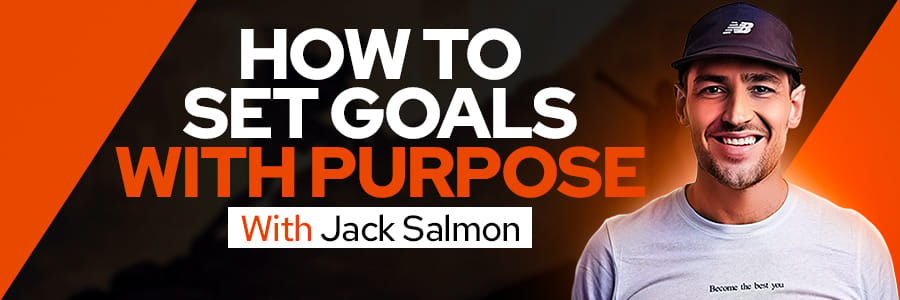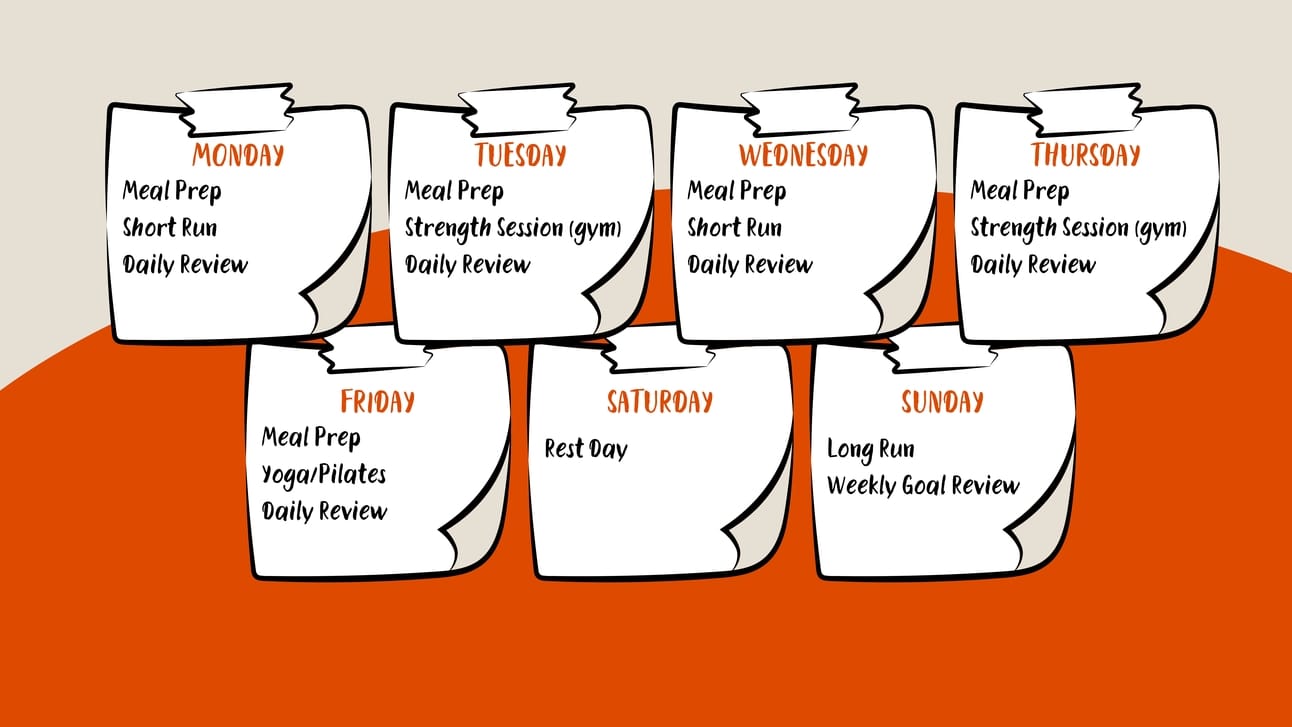Hey – before we dive in this week, a quick thought from me.
One thing I’ve noticed working with ambitious people over the years: they usually know what they want but something still gets in the way.
Sometimes it’s a lack of clarity.
Other times, it’s trying to chase too many things at once.
Often, it’s just not having a system to stay on track.
In this edition, Jack shares what he’s learned about setting goals that actually stick and the exact framework he teaches to help clients follow through, even when motivation dips.
Let’s get into it 👇
P.S. If you haven’t already, give the podcast episode with Jack a listen – perfect for anyone serious about maximising their potential this year.

What’s the most common reason you see people fail to achieve their goals?
Honestly, there are four main reasons I see again and again, whether it’s with people I’ve worked with or just from my own journey.
Number One - Too many goals.
They’re working on five, six, seven things at once, so none of them get the attention they need.
Number Two - No strong “why.”
You’ll see someone crushing it at work but falling short in their fitness goals - usually because they care more deeply about one than the other. Without a strong emotional driver, you won’t push through when it gets tough.
Number Three - They set a goal, then don’t check in with it.
A few weeks go by, and they realise they haven’t made progress, so they either give up or push the deadline further and further back.
Number Four - Not taking action.
Simple, but true. Some people talk about their goals more than they actually work on them, they might do something for a week, then drop off completely.
How many goals should someone actually set to avoid that first issue?
Set as many as you want - I’ve got over 20 written down, but don’t work on them all at once. I use what I call the “Rule of Three”, where I’ll pick:
One professional goal
One personal development goal
One lifestyle goal
Then I focus on just those for a quarter or however long they’ll take.
Once I complete one, I bring in the next from my list. That way I’m never spread too thin, and I’m working through my goals strategically.
What does the actual plan look like when you’re working on a goal?
I follow my framework, I call it the “Be Clear” system:
Clarify the goal and be specific. “I’m going to run a marathon” - not “get fitter.”
Then list the actions and break it into what needs to happen weekly, such as running three times per week, meal prep, and strength sessions in the gym.
Once you have done this, you can create a plan and schedule those actions in your calendar.
You need to ensure your goal aligns with your values, if the goal doesn’t line up with what’s important to you, you won’t stick with it.
Finally, review and check in daily and weekly. What did you say you were going to do? Did you do it? Are you on track?
An example of what this might look like in practice could be:

You mentioned that reviewing is where most people go wrong. What’s your review process?
Every evening, I check in on whether I did the actions I committed to, then at the end of the week, I will take a moment and ask:
Am I on track with my timeline?
Am I doing what I said I would?
Is the goal still aligned?
The goal itself is the aim, but it’s the system and the review process that actually get you there.
What about staying motivated when setbacks hit?
The number one thing to keep in mind is to make sure your “why” is strong. That’s what gets you through the hard bits.
And two, know that setbacks are part of the process. Instead of letting them stop you, look at what they’re teaching you.
Growth doesn’t happen without pressure, and setbacks force you to become the person who can actually achieve the goal.
A Weak Why: “I want to get fit because I should.”
Why it’s weak: It’s vague, passive, and externally motivated. It lacks emotional connection or urgency. “Should” doesn’t fuel long-term commitment when things get tough.
A Strong Why:
“I want to get fit so I can have the energy to play with my kids, live longer, and be a role model for them.”
Why it’s strong: It’s specific, emotionally charged, and deeply personal. It connects the goal to values, making it much more resilient during setbacks.
What would you say to someone who’s struggling with self-doubt or limiting beliefs?
I’ve got five go-tos:
Keep your word - If you say you’ll train at 6 am, do it and build trust with yourself.
Acknowledge your wins - Don’t wait for the final result to feel proud, celebrate progress.
Detach confidence from outcomes - Confidence should come from showing up, not just hitting targets.
Drop bad habits - They chip away at your self-worth, even when they feel good in the moment.
Act with courage - Take action even when you’re scared. Confidence follows action - not the other way around.
Finally, what should someone do if they’re no longer enjoying the process of working towards their goals?
Firstly, make sure your goal actually means something to you and something you want to do, that sense of purpose really matters.
Secondly, your goal might not be challenging enough; if it feels too easy or routine, you’re likely to feel less excited and motivated.
We usually feel more energised and driven when we’re stepping just outside our comfort zone.
Lastly, and honestly, accept that you’re not going to love every part of the process. There have been plenty of times when I didn’t enjoy certain parts of working toward a goal, but if you really want it, you do the work anyway.
If you enjoyed today’s newsletter and want to hear more from Jack, you can follow him on his social media links below!
P.S. Whenever you're ready, there are 2 ways I can help you:
#1: Do you listen to my podcast? I release a weekly episode with either a top-performing recruiter or recruitment entrepreneur to find out how they achieved their success so you can learn directly from their journey Check out my latest episode and subscribe to the show.
#2: Are you tired of your teams' inconsistent performances hindering your growth? Hector (All-In-One Training Platform with 120+ Practical Courses) equips your team with actionable, step-by-step training from top-performing recruiters so you can eliminate inconsistency and drive reliable results—without the need for costly external trainers >>>> Book A Free Skills Assessment Session With Me Here to see how we can help you unlock the full potential of your team.
